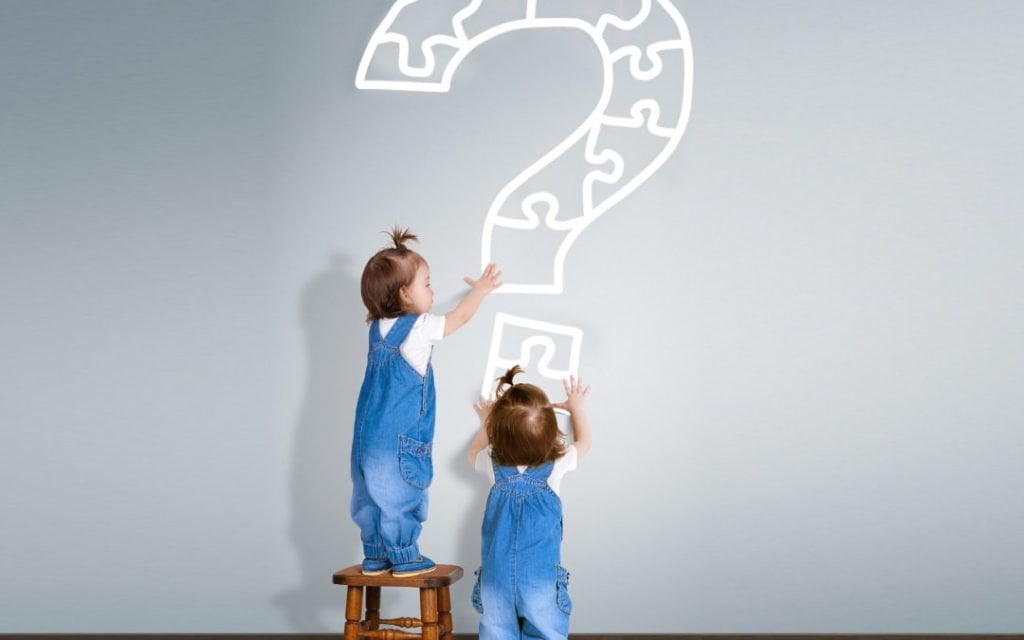- My Basket 0 items - £0.00
How to help your child learn to be with uncertainty
October 26th, 2020 in Blog
This year has been an incredible opportunity for us all to learn more about dealing with uncertainty! It has been very difficult to plan and plans have had to change at the last minute. On top of this, we haven’t been able to “look forward” to things as much and many of us have held back from telling our children possible plans in case they change.

Do you think it is important for our children to learn to handle uncertainty or do you think it’s better to protect them and give them as much certainty as possible?
What I have learnt from working with leaders is that being comfortable with uncertainty is a key skill. As leaders, we often don’t know the answer or can’t share with clarity the next step and this can lead to us making decisions too soon. If we don’t like uncertainty, we tend to over plan which can make us much less flexible and agile. It can have an impact on our relationships as we can get upset when people don’t do what they say they were going to do or change the plan at the last minute. We can be so unused to uncertainty that it causes us to feel stressed and anxious and so we tend to make an assumption or jump to a conclusion so that we can feel more certain even though we haven’t got the right answers, we decide that any answer is better than no answer.
For leaders, the goal is often to learn how to stay with uncertainty for longer. This doesn’t necessarily mean avoiding decisions, it’s actually the opposite, it’s about making decisions that are more long term or risky and sitting with the uncertainty that comes from this.
We all know that if you give children a plan, they assume that it will happen and so many of us don’t even share our plans so we don’t have to deal with the fall out. BUT what if it was actually good for them to learn that plans change and sometimes need to change? What if it was more helpful to let them experience the unknown a bit more and learn to cope with it? In an age of us all wanting to protect our children as much as possible, perhaps we are more likely to make decisions for them and give them certainty most of the time?
In my experience, children are much more proficient at dealing with the unknown than us so perhaps it’s more a case that we need to be careful we help them to continue to nurture this skill?
So how can we nurture this skill in our children?
1. Firstly decide where you are on the scale uncertainty?
If feeling comfortable is a 1 and feeling very uncomfortable is a 10 where do you tend to sit? Wherever you are, you are role modelling this behaviour for your children often without realising it! You might need to consider how you develop it yourself before you can help your children do the same.
2. Share uncertainty more.
For example the famous phrase are we nearly there yet? How do you normally respond? Do you give a certain answer or do you say you aren’t sure? The same goes for when they ask you what you think – do you tell them straight away or do you respond with “I don’t know”
3. Help them to recognise the feelings that go with uncertainty.
For example: butterflies, excitement, sickness, unease. Can you normalise these as feelings everyone has when they don’t know what might happen? This will help them to feel more comfortable.
4. Exercise your uncertainty muscles.
For example, you might go for a walk and take paths that you haven’t been on before to see where they lead or try recipes without the instructions or by adding different ingredients etc. What else have you tried?
5. Celebrate uncertainty more.
When we don’t know what’s going to happen, anything is possible, you could consider sharing this with your children and asking them to try and stay a little uncertain for a bit longer.
Finally, as ever, we can learn so much from our children – try asking them for tips on how they do it – they will love to share their expertise!